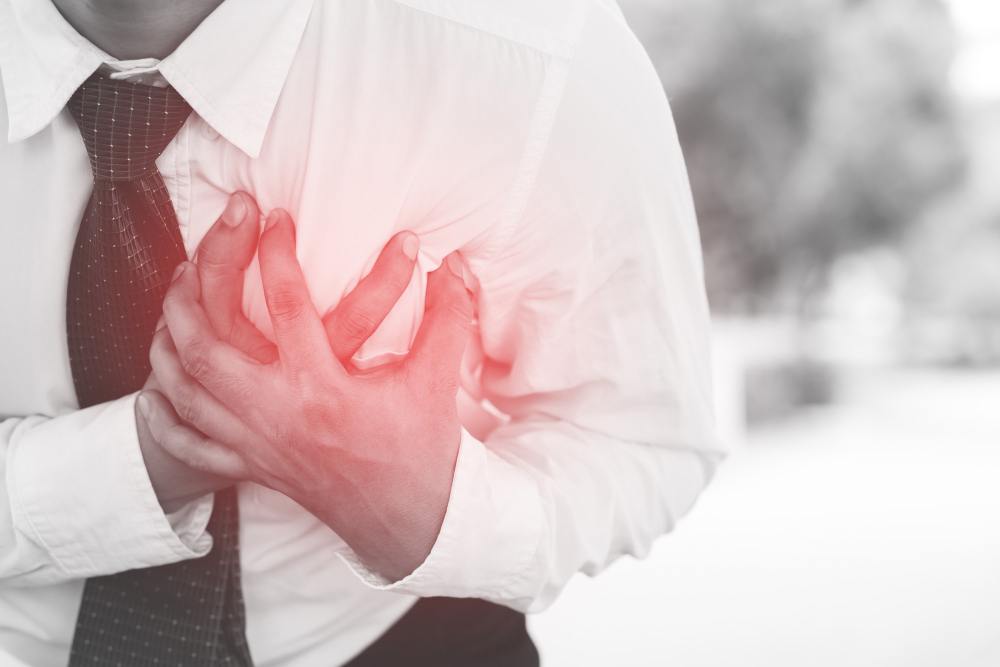When a heatwave hits, people are quick to think about sunscreen, hats, and shade. However, the effect of heat on the heart is usually overlooked. Whether you’re managing a cardiovascular issue or just concerned about staying healthy, extreme temperatures can lead to real risks for your heart. Capitol Cardiology Associates is here to shed light on how heat affects heart health. Read more for practical ways to keep your heart happy in hot weather.
Take It Easy
In hot weather, even routine activities can feel exhausting. If you’ve ever broken a sweat while just running errands or watering plants, you’re familiar with how much harder simple tasks can be when the heat is on. For people with heart conditions, this increase in effort can lead to real health risks. When it’s hot out, your body works extra hard to maintain a safe temperature. Your heart rate rises as your body diverts blood flow toward the skin’s surface to cool down, which places an extra strain on your cardiovascular system. So, activities that might be easy on a cool day, like walking your dog or doing yard work, could lead to fatigue or dehydration. Taking breaks and listening to your body are important. Don’t feel like you have to keep pushing yourself just because it’s on your schedule. Instead, let yourself slow down, rest in the shade, and stay indoors if the temperature is soaring.
Drink Up
Keeping yourself hydrated is one of the simplest ways to protect your heart in the heat. When you’re dehydrated, your blood becomes thicker, which makes your heart work harder to pump it around your body. Dehydration can also lead to an electrolyte imbalance, which interferes with your heart’s electrical system and increases the risk of palpitations or irregular heartbeats. To stay hydrated, try to drink water consistently throughout the day. Don’t wait until you’re feeling parched. Bring a water bottle with you, especially if you’re spending time outside, and remember that caffeinated or sugary drinks can contribute to dehydration rather than relieve it. Drinking water or an electrolyte-balanced beverage can help your heart maintain its regular rhythm and make it easier for your body to handle the heat.
Beat the Heat
High temperatures can lead to heat exhaustion or heatstroke, which can have serious consequences for heart health. When the body overheats, the heart has to work harder to pump blood to the skin, which releases heat. If your body temperature gets too high, this cooling mechanism starts to break down and puts stress on your cardiovascular system. Luckily, there are simple ways to keep cool. If you’re spending time outdoors, wear light, loose clothing and stick to shady spots when you can. Indoors, fans, air conditioning, and cool showers can help bring your body temperature down quickly. If you don’t have access to air conditioning, try spending time in places that do, such as libraries or shopping centers, during peak heat hours.
Know Your Prescriptions
If you’re taking medication it’s important to understand how it might impact your body’s response to heat. Some medications can alter your body’s ability to regulate temperature, so you may be more vulnerable to dehydration or heat-related side effects. Diuretics, which are often prescribed for high blood pressure, increase fluid loss, which can exacerbate dehydration. Beta-blockers can lower heart rate, which might reduce your tolerance for heat-related stress, while other medications might impact sweat production, making it harder for your body to cool itself down naturally. If you’re unsure about how your medications interact with heat, check with your heart doctor. They can help you understand what precautions to take or adjust your medication schedule temporarily.
Keep Tabs on Blood Pressure
Hot weather can lead to changes in blood pressure, which might catch you off guard. When it’s warm, blood vessels expand to help cool your body down, which can cause a drop in blood pressure. For some people, this might only mean mild lightheadedness, but if you’re managing blood pressure-related heart issues, it can become more severe. Lower blood pressure can make it more challenging for your heart to pump blood efficiently, especially if it’s already under strain from the heat. Monitoring your blood pressure can give you insight into how your body is handling the weather. A quick at-home reading can help you understand if the heat is impacting your blood pressure so you know when it’s time to take it easy or reach out to your cardiologist. And if you notice consistently low or unusual readings, seek medical advice.
Are You Looking for a Qualified Cardiologist Near You?
If you’re worried about how the heat might be affecting you, reach out to Capitol Cardiology Associates today. Your heart deserves extra care, especially in high temperatures. Contact us to schedule a consultation with a local heart doctor.






